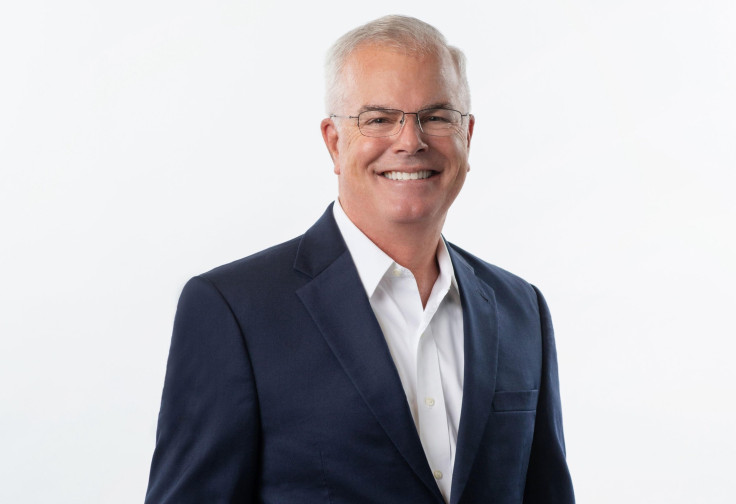Businesses Must Embrace Ethical Lobbying If They Want To Benefit From Government Spending

Supporters of increased Federal spending believe it will help the economy recover and fuel a small business boom. That can only happen if small businesses can understand and access Federal government contracts. Almost all of them don’t and can’t, because they don’t lobby the government.
Too many businesses think lobbying is a dirty word or worse, a corrupt practice that is solely responsible for the outcome of government decisions. If that (incorrect) perception doesn’t change, it will be America’s biggest companies -- those who already have deep relationships in DC -- that will again get most of the increased Federal spending.
That doesn’t have to happen, and it shouldn’t. Every US business should realize that seeking influence in the context of government contracts is no different to any other business development process - the real difference is the communications skills that apply to the customer constellation that is Uncle Sam.
More US firms should recognize the value of political influence for the sake of their business bottom line, the needs of their communities and the economy as a whole.
For that to happen, they must see beyond high-profile but unrepresentative lobbying scandals. Legislation around Federal lobbying, such as 2007’s Honest Leadership and Open Government Act, make sure that the vast majority of lobbyists - and their clients - play by the rules. When bad apples like Randy ‘ Duke’ Cunningham or former lobbyist Jack Abramoff are exposed, they are appropriately jailed, just as criminals in other industries are brought to justice.
President Obama rode to office, in part, on an anti-lobbyist platform; it makes for clever political sound bites. It is right that we constantly strive for better systems for Congress to communicate with industry.
But we can’t let a few individuals’ abuses of power stop small, nimble American businesses from approaching their most valuable potential customer; the Federal government.
Too many Americans assume that wealthy individuals, businesses and industries are able to unduly or unfairly influence the government. The reality is that too few businesses exercise their inherent right to participate. The larger companies make the investment in people to be present in the decision-making process, while the smaller companies sit back and focus on their immediate business tasks.
The First Amendment affords equal access to all citizens (and businesses) to approach the government through a loosely defined ‘redress of grievances.’ Lobbying is a constitutional right, and one more of us should exercise.
It’s time we talked openly about what lobbying really is -- the free flow of information. Many former Congressmen, Senators and Staffers, as well as Executive branch officials, go into public affairs simply because they recognize they have knowledge that is valuable and important in helping companies achieve business objectives with the government, and the government to find the best suppliers to deliver public services. There is nothing shadowy about this.
The only thing wrong with lobbying is when the irrational shame surrounding it leads some to lobby in the shadows, without declaring that activity in a public and transparent way. In those cases, it is the failure to disclose that causes the stir, not the action itself.
There is nothing wrong with lobbying - or being lobbied. The only way to get that reality across to the public is to make sure that it is done transparently. The U.S. has a specific lobbying reporting regime in place to report lobbying relationships. Annual GAO (Government Accountability Office) audits confirm the system of reporting works.
Lobbying is actually a fundamental feature of democracy. As Thomas Sowell points out “reform through democratic legislation requires either ‘public consensus or a powerful minority lobby’. Those who distrust the lobbying profession might forget that the NAACP, Greenpeace and Black Lives Matter are all ‘lobbyists’, or special interest, groups. Some of the largest strides in civil rights have been created through lobbying.
Every aspect of one’s life, from health care to food safety to veterans’ services, has lobbying support helping educate lawmakers on the technical aspects of their industry. Businesses, communities, special interest groups - they all have the right (perhaps even the obligation) to ‘lobby’. We cannot expect government officials in DC to understand the complexities of all the emerging issues across 50 states. As Richard Stafford, Professor at Carnegie Mellon University's Heinz College pointed out, “it’s up to government officials to dissect the arguments and resolve policy. Lobbying is key to making sure government has all of the information and responds effectively.” Lester Milbrath concluded the same in his seminal work ‘The Washington Lobbyists’ in 1963.
Lobbying is even more important now that Federal spending is higher than ever.
It is the responsibility of lobbying and advocacy groups, to include individual businesses, to be the eyes, ears and brains behind how exactly this money is spent - and which American businesses, and ultimately American communities and households, benefit.
That won’t happen if lobbying remains a ‘dirty word’ in the minds of too many Americans.





















